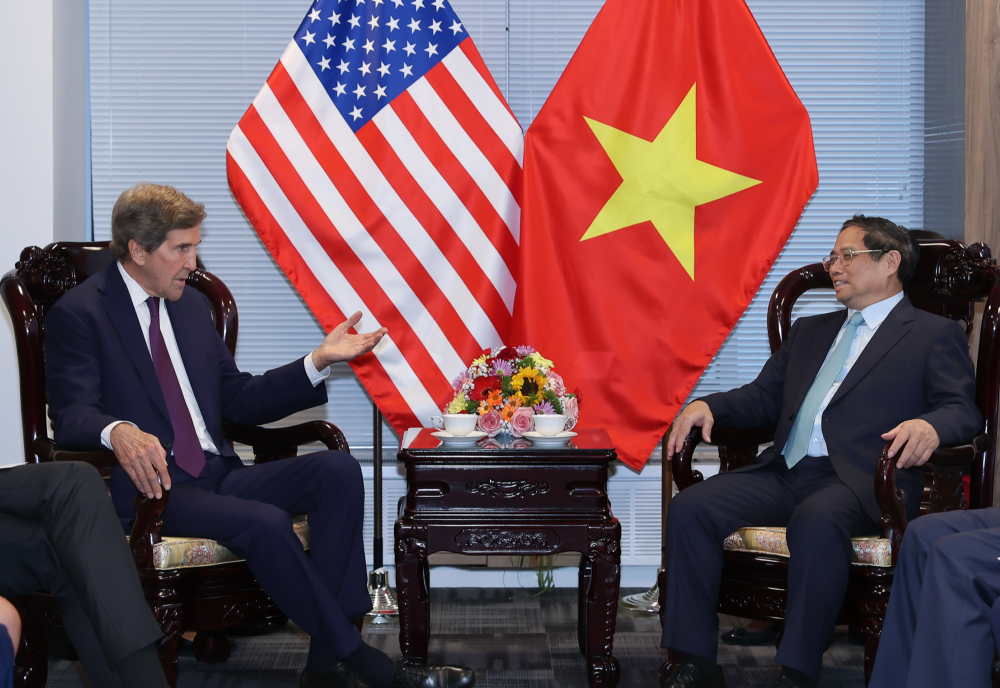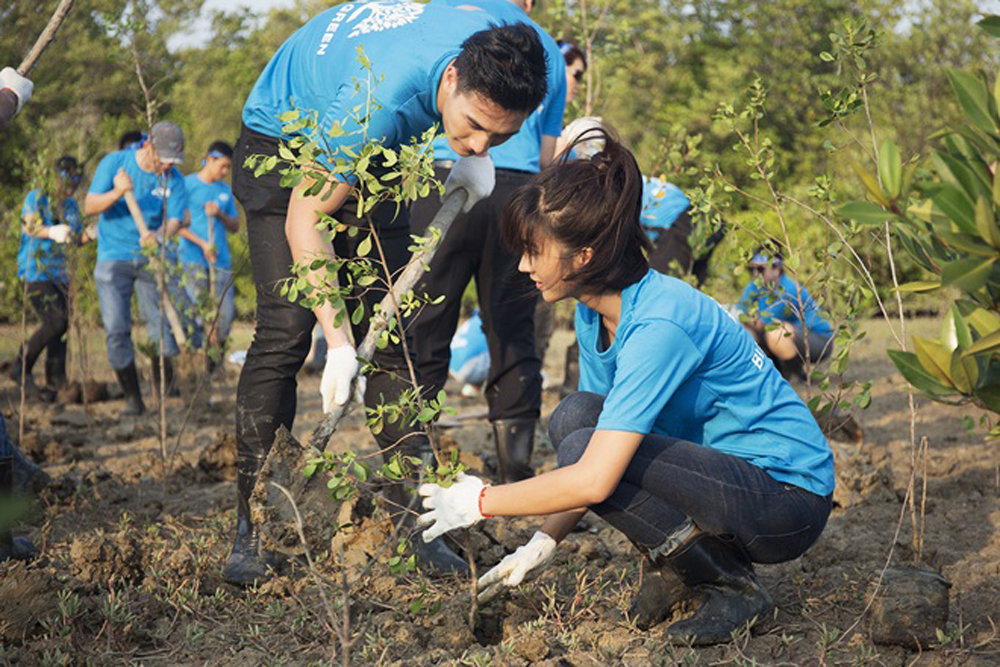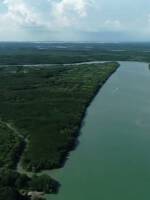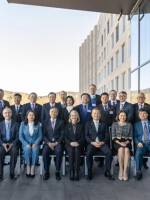
Specific measures to concretize climate change response targets set out in the Vietnamese and US Leaders’ Joint Statement on upgrading the relations to a Comprehensive Strategic Partnership would be effectively taken.
Vietnam’s Prime Minister Pham Minh Chinh said at the meeting with US Special Presidential Envoy for Climate John Kerry in New York during his week-long trip for the 78th Session of the United Nations General Assembly and bilateral ties.
Chinh discussed with Special Envoy John Kerry how to swiftly put major agreements reached during the visit into action, particularly combating climate change.
He recommended that the US support Vietnam’s initiatives to achieve net zero emissions by 2050, adhere to the Just Energy Transition Partnership (JETP), and develop a renewable energy sector.
Chinh thanked and appreciated John Kerry’s invaluable support in President Joe Biden’s visit and forging a Comprehensive Strategic Partnership between the two countries.
Climate change is one of the key pillars of the relationship. The countries recognized the importance of working with experts outside the government to advance low-emissions, climate-resilient agriculture, biodiversity conservation, pollution reduction, and the resilience of vulnerable communities, including through disaster preparedness.
The US also supports Vietnam’s efforts to increase clean energy production.
Vietnam welcomed the US contribution to mobilize public and private financing for Vietnam’s JETP and to cooperate with the international community to ensure its successful implementation while ensuring national energy sovereignty, security and affordability.
Meanwhile, the US committed to assisting Vietnam with financing and advanced climate technology to fulfill its international climate commitments.
Vietnam welcomes projects funded by international financial institutions, including the World Bank, in climate change response, energy transition, green growth, and renewable energy infrastructure.
According to John Kerry, the US always values its relationship with Vietnam and supports it in promoting its leadership position in efforts to combat climate change on a global scale.
He said the US will continue to improve its partnerships with and assistance to developing nations like Vietnam. This support will focus on developing renewable energy sources, smart power transmission networks, and environmentally friendly infrastructure.
As a long-time friend of Vietnam, John Kerry reaffirmed his desire to continue fostering cooperation with the country to carry out its net-zero commitment made at COP26 and its engagement in the United Nations Framework Convention on Climate Change (UNFCCC) or Conference of the Parties on the UNFCCC (COP28) in the United Arab Emirates in November 2023.
John Kerry stressed the cooperation in climate change response during his visit to Vietnam one year ago, in September 2022. At the meeting in Hanoi, Kerry and Chinh underscored their determination to collaborate closely on reducing greenhouse gas emissions and making Vietnam a leader in the fight against climate change. Kerry said: “The United States is committed to working with G7 countries and others to support an ambitious and just energy transition and climate change adaptation in Vietnam.”

Specific support
Over the years, the US Agency for International Development (USAID) has supported the Government of Vietnam’s development and climate priorities through programs and partnerships on climate adaptation, renewable energy, and sustainable landscapes.
USAID supports Vietnam in preparing for and responding to natural disasters, restoring habitats, and expanding the use of nature-based solutions, such as mangrove forests, which act as protective buffers against coastal storm surges, as tools for coping with climate change. These tools can reduce disaster risk, support livelihoods, and improve food and water security.
USAID’s key adaptation programs in Vietnam include sustainable forest management, biodiversity conservation, Mekong Delta coastal habitat conservation, and key mitigation ones, namely low emission energy program, urban energy security, and investment program.
In short, the USAID partners with Vietnam to strengthen its environmental security and stewardship. They are working together to mitigate greenhouse gas (GHG) emissions and increase resilience to the impacts of climate change.
USAID addresses climate change by accelerating Vietnam’s transition to clean energy, protecting the natural environment, and working with local communities on environmental pollution, as well as strengthening disaster response, preparedness, and risk reduction.
Minh Nguyen




